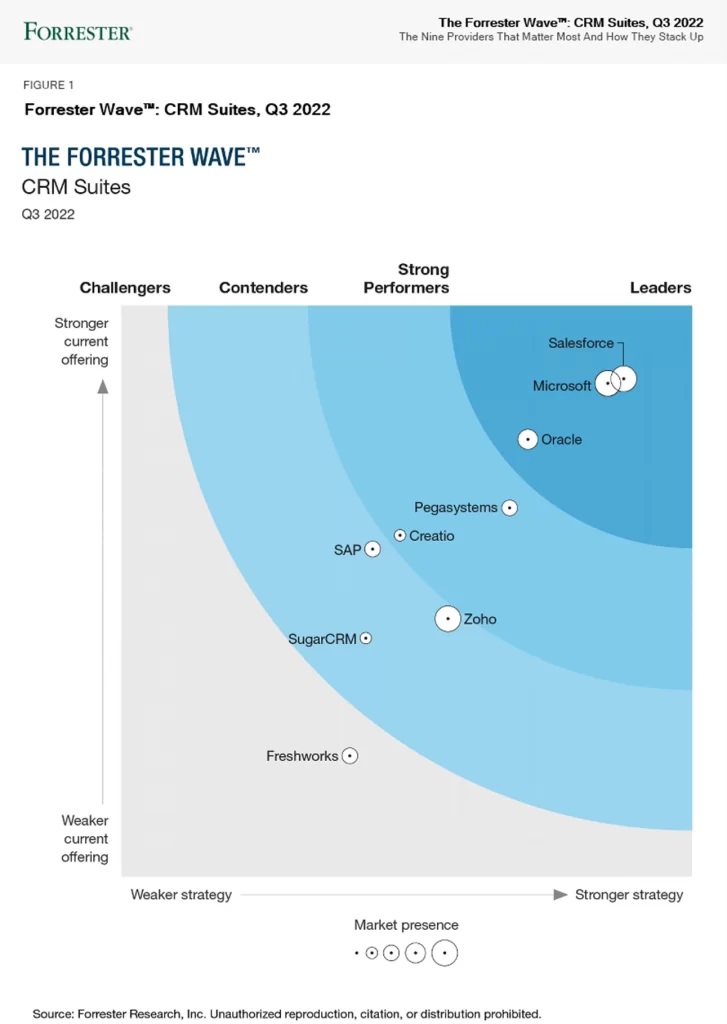The Future Of CRM: A Forrester Perspective
The future of CRM is looking very bright. With the advent of new technologies, CRM is becoming more and more user-friendly and effective. CRM will become more integrated with other business systems, making it even more valuable to businesses. With these advances, CRM will continue to be a powerful tool for businesses of all sizes.
Customer relationship management (CRM) is important for every business. Most companies spend $500,000 to $5 million a year on CRM. In the past, CRM was only about making the front office more productive. But now it is a technology that supports customers throughout their journeys. It drives customer relationships, retention, and revenue.
CRM has broken out of its organizational silos and become a company-wide mandate. CRM’s new purpose as a company-wide mandate has acted as a driver to push the technology forward. CRM’s goals have always been to improve customer relations, but now with wider support, it can aim to break down silos and streamline processes across departments. This increased visibility also means that more businesses are being held accountable for the success of their CRM projects.
- CRM becomes more powerful as it aims to support all things customer: CRM consolidates the sales tech, marketing tech, and customer service tech point product ecosystem. It coalesces with digital experience platforms into composable customer engagement ecosystems to support digital and human-assisted customer journeys. CRM bleeds into the middle office and into core contact center operations. It encroaches on the traditional span of human capital management solutions. And it becomes embedded into workplace apps, such as collaboration tools, and allows non-customer-facing employees to align around and orchestrate actions that benefit the customer.
- CRM technology will recommend ideal organizational constructs. It captures the context in which work is done and its outcomes. Insights can be used to dynamically assemble the right teams based on skill and performance and, in the future, even recommend formal organizational hierarchies, roles, and responsibilities that drive peak performance.
- CRM will underpin front-office employee success. CRM will train users and unlock new career paths. It does this by tracing user actions and identifying next best actions for coaching and learning. Onboarding workflows will unlock more advanced functionality as novice users gain competency; users will unlock new training paths to uplevel their skills and open opportunities for advancement. CRM captures every user action, allowing performance management to become in the moment and continuous — and able to match performance outcomes to employee incentive programs and even, in the future, compensation.
Read Forrester Wave report on the Future of CRM to understand the power of modern CRM.
Read the full article at Forrester Research, Inc.
Microsoft is a Leader in The Forrester Wave: CRM Suites, Q3 2022
 What makes Microsoft Dynamics CRM and connected products stand out from other CRMs?
What makes Microsoft Dynamics CRM and connected products stand out from other CRMs?
Here are 7 major takeaways to consider:
1. Dynamics 365 offers a full-funnel, end-to-end solution. Dynamics 365 is the only intelligent business application portfolio that increases revenue outcomes by transforming selling experiences through a single intelligent, digital, and customised solution.
2. Powerful AI insights at your fingertips. Dynamics 365 empowers everyone, across all teams, to make better and more impactful decisions by translating data into insights powered by Microsoft AI, allowing teams to be more effective and productive.
3. Bridging the gap between teams. Microsoft Dynamics 365 offers the leading workplace collaboration, video conferencing, and meeting software in the world with Microsoft Teams, which can connect seamlessly with out-of-the-box CRM or be personalized to fit an organization’s needs with custom features.
4. Personalize every experience. Dynamics 365 Marketing assists companies in more deeply understanding their customers and drives intent with AI-powered insights to deliver connected experiences—all the way from acquisition to retention.
5. Streamlined, proactive, scalable sales. Dynamics 365 helps sales teams uplevel forecasting and revenue operations with built-in AI and machine learning and enhance seller performance with recommended next best actions, productivity tools, and real-time coaching.
6. Service capabilities that are unprecedented. Dynamics 365 Customer Service enables enterprises to satisfy the changing needs of each customer across all channels, increasing customer happiness while increasing frontline employee productivity regardless of location.
7. Transformation with minimal code. Organizations may provide everyone with the ability for low-code transformation with low-code, easy, extendable solutions that effortlessly integrate to Dynamics 365 using Microsoft Power Platform.
.png)